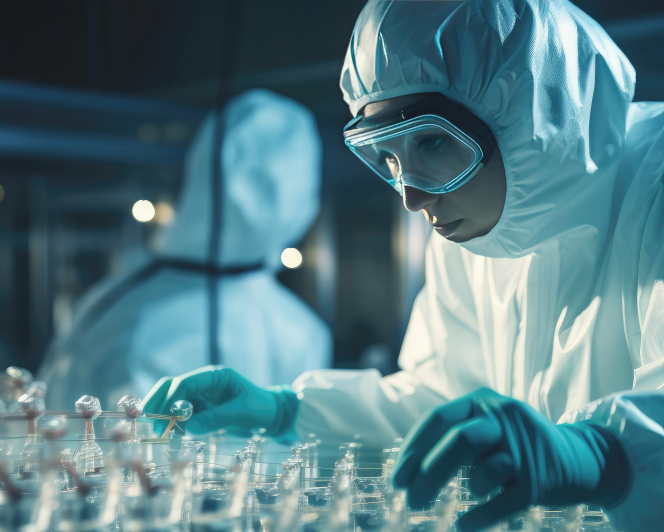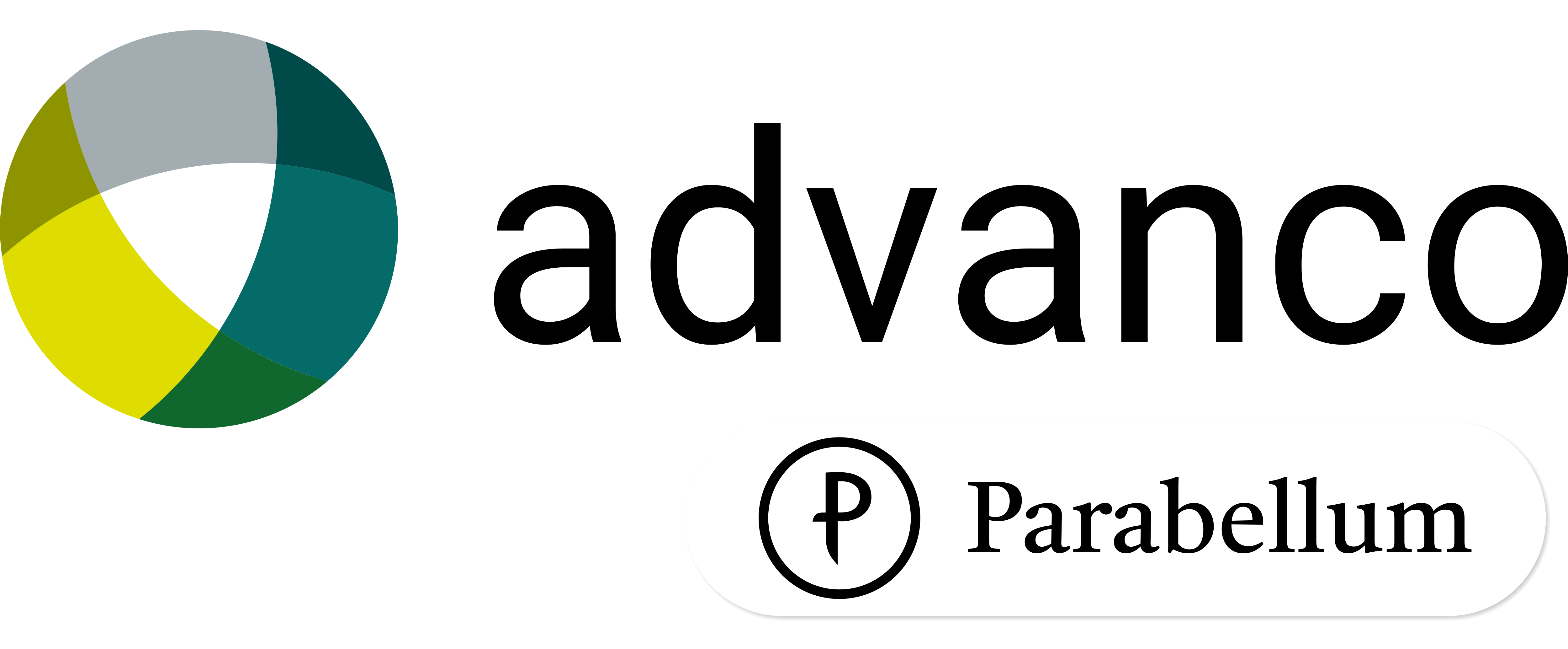Pharmaceutical Pandemic Positives
We all hope that we will never see another global pandemic again.

When Covid first took hold in 2020, so began one of the worst global disasters seen in generations. In addition to countless deaths and life-changing injuries, the pandemic also resulted in untold job-losses, market volatility, business closures and damage to virtually every industrial sector across the globe.
However, against such a devastating backdrop, the pharmaceutical sector demonstrated to the world its vast ability to perform under intense pressure. The fact that new vaccines were developed and rolled out to all four corners of the globe in an incredibly short timeframe showed just how skilled and resilient the pharmaceutical sector is. Indeed, the pharmaceutical sector did not simply produce vaccines, it produced hope. It was instrumental in allowing the world to shake off the pandemic and get back to some degree of normality.
Nonetheless, there is still a concerning Covid hangover. We would never look to minimise the effects of this devastating pandemic. It caused major issues and is still doing so. Indeed, in addition to the tragic cost to human lives, many influential think-tanks, including the International Monetary Fund, are open in the fact that Covid continues to cause significant economic damage – and will for many years to come.
However, if you dig deep enough, there are some positive outcomes for the pharmaceutical sector. Let us examine what they are and see how they have produced a blueprint for the future should another pandemic occur.
Being ever-ready instead of unprepared.
One of the overriding reasons for the global vulnerability seen when the pandemic took hold was a basic one. Most industries, governments and countries were simply not prepared for such a devastating pandemic that appeared seemingly out of nowhere.
The world was placed into lockdown to prevent the virus spreading, but this led to major logistical issues. This included problems with sourcing the quality and quantity of supplies needed, and an inability to distribute them across the globe. This gave a green light to the pharmaceutical forgers, who started producing fake medicines right from the world go, piling even more misery into a global problem.
However, it is fair to say that this state of unpreparedness will never be allowed to happen again if the world is unlucky enough to experience another pandemic. Lessons have been learned, and new ways of working have been adopted to ensure we always remain on a state of semi-alert. Let us examine what these practices are, and what they mean for the pharmaceutical sector generally, and the track and trace sector specifically.
Working in unison.
The advent of the pandemic highlighted the importance for product serialization solution providers to work together for the good of the overall pharmaceutical supply-chain.
Indeed, we are already seeing the implementation of agile supply chain regulation which will require a strong industry-standard open interface and interoperability – something that advanco has long championed. We strongly feel that the hardware and the software among different vendors needs to be much more aligned and should work much closer together. Imagine if this had been the case once the new vaccines had been developed and the quicker joint response that could have been instigated.
On a much broader level, such sophisticated levels of cooperation will ensure we can all benefit from the confidence in the quality of the medicine and equipment that we are using, no matter where they are produced in the world.
Overhauling antiquated systems.
The traditional business computing set-up is built on a centralized data center. However, the global pandemic vaccine roll-out magnified the fact that the everyday internet is not the best suited to moving endlessly growing rivers of real-world pharmaceutical track-and-trace data. Indeed, the ever-present threats resulting from bandwidth limitations, latency issues and unpredictable network disruptions regularly threatened to cause major operational issues to those tasked with ensuring a watertight vaccine rollout.
The prospect of moving so much data in situations that can often be time- or disruption-sensitive puts incredible strain on the global internet, which itself is often subject to congestion and disruption.
One of the solutions to this, a solution which has been escalated because of the pandemic pressures, comes from edge computing. This is a distributed IT architecture in which client data is processed at the periphery of the network, as close to the originating source as possible. It shifts the focus from the central data center to the logical edge of the infrastructure — taking storage and computing resources from the data center and moving those resources to the point where the data is generated.
The impact of this new-edge technology on the pharmaceutical track-and-trace sector is already huge, especially where overall supply-chain operations are concerned.
The rapid uptake of digital barcode scanning systems combined with the very latest, cutting-edge technology, has made supply chains much more secure. New-edge computing is tightening this up even further. It will power automatic, time-sensitive supply chain processes in warehouses, factories, and manufacturing facilities. These processes will lessen the need for human management and create optimal outcomes while eliminating the risk of error due to manual processes.
General digital investment
The very DNA of the global business landscape is already changing beyond recognition as we edge ever closer towards a digitally driven Industry 4.0.
Digitalization will control virtually every aspect of the pharmaceutical sector – a move that has been exacerbated by the pandemic. We are seeing much higher levels of transparency and adaptivity for a digitalized plant floor, a movement which will only increase over the coming years, incorporating cyber-physical systems, Internet of Things, cloud computing, cognitive computing, and artificial intelligence.
Advanco is proud of its recent track record in encouraging the pharmaceutical sector to invest in its digital capabilities. We have long realized that the smart factory will soon become a common reality across the globe, thanks to the already smart machines that keep getting even smarter as they access more data. Indeed, we were one of the first companies in the pharmaceutical sector to highlight the importance of how digital systems will sit behind a revolution in how supply-chains are structured.
One of the major issues highlighted by the pandemic was the fact the globe had become overly reliant on just one geography – namely China – for the supply of medication and medical equipment. Not only did this cause a damaging bottleneck, placing an inordinate amount of stress on the rigid supply-chains connected with Chinese production, it placed an unrealistic demand on resources.
While China is, of course, a major global pharmaceutical producer, even it was finding it tough supply the rest of the planet through its established, rigid supply-chain. Fast-forward to today and while there is a still an overwhelming reliance on geographies such as China for the supply of much of the globe’s medication, the Covid pandemic has seen this pattern shift, a pattern that is being driven by the latest technology and systems.
We are now seeing a move towards local production and sourcing through the repatriation of supply-chains into Europe and the USA. This repatriation is a big deal for the future of the pharmaceutical sector. It signals confidence in the capabilities of these regions, resulting in increased, ongoing investment into these areas.
Conclusion
It is quite feasible that another pandemic could rise again. We might not want to think about it right now, and it goes without saying that none of us want another one, but the fact remains that it remains a possibility.
If we are unlucky enough to see another pandemic, we should take a crumb of comfort from the fact that lessons have been learned since 2020. The pharmaceutical sector of the present is now on a constant state of standby, ready to spring into action at short notice, with digital innovations and increased cooperation powering the systems that will enable a swift, global response.
If we must treat Covid as a dress rehearsal, then so be it. Being prepared is half of the battle and we have a duty to ensure it’s one we are all ready to fight together.



